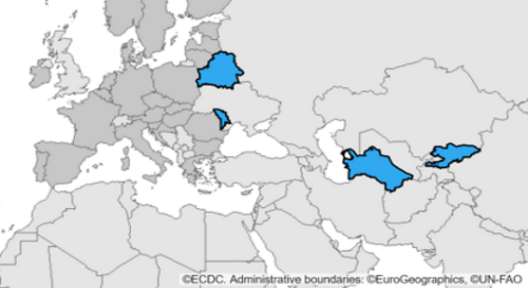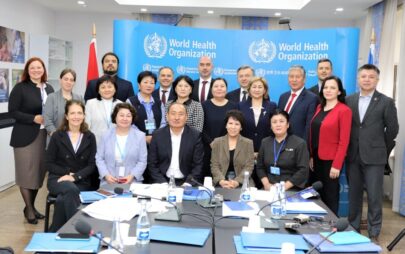Sero-B
Preparation of Serosurveys to Evaluate the Hepatitis B Vaccination Impact in Eastern Europe and Central Asia

Short Description
In the European Vaccine Action Plan, the WHO defined hepatitis B control through immunization as one of the major strategic goals. The WHO/EURO Action Plan for response to viral hepatitis sets the goal of elimination of viral hepatitis as a public health threat by 2030. It also sets hepatitis B control targets, including reaching very low prevalence (≤ 0.5%) of hepatitis B surface antigen (HBsAg) in cohorts born after introduction of universal hepatitis B vaccination. The WHO Regional Office for Europe supports countries in implementing the Regional Action Plan strategies and monitors the progress towards hepatitis B control targets. Every country should undertake at least one HBsAg seroprevalence survey in a representative sample of population cohorts born after the nationwide implementation of the hepatitis B immunization programme.
The Ministries of Health of Belarus, Kyrgyzstan, Moldova, and Turkmenistan asked WHO Euro for the support in conducting hepatitis B seroprevalence studies to document hepatitis B vaccine impact and validate the achievement of regional hepatitis B control goals. In this project the Robert Koch Institute (RKI) will provide technical support for two of these countries. The countries will be chosen together with WHO based on availability of national staff and resources in the current situation.
The project will strengthen national public health institutions in the target countries and viral hepatitis elimination monitoring by working together with national public health institutes. Furthermore, the project will generate evidence of hepatitis B vaccination impact in the region and thus provide evidence of achievement of hepatitis B elimination targets.
Project Objectives
Aim of the serosurveys is to estimate the seroprevalence of HBsAg in children from vaccinated cohorts on the national and regional level. The RKI will be in charge of providing technical expertise for design and implementation of the serosurveys. In general, the serosurveys in the countries will apply probability-based sampling using a stratified multi-stage cluster design. A school-based or polyclinic-based approach will be used, where the schools or polyclinics will act as clusters. Prior to implementation, the surveys will be submitted for ethical committee approval in the respective countries. The project will include two work-packages (WP):
WP1: Together with WHO, prioritization of two countries for technical support in 2021 and assessment of country needs for technical advice.
AP2: Provision of respective technical advice, including:
- Advising on study methodology and documentation
- Advising on development and piloting of the study material, data and sample collection
- Advising on laboratory testing methods
- Sampling of the study participants
- Technical support in monitoring of the survey
- Development of the data analysis plan
In WP2 a (virtual) country mission together with WHO staff is planned in order to meet with stakeholders and discuss the respective topics. Continuous support for the selected countries, follow-up activates and support for other Eastern European and Central Asian countries is planned from 2022 onwards.
Last update: June 2022
